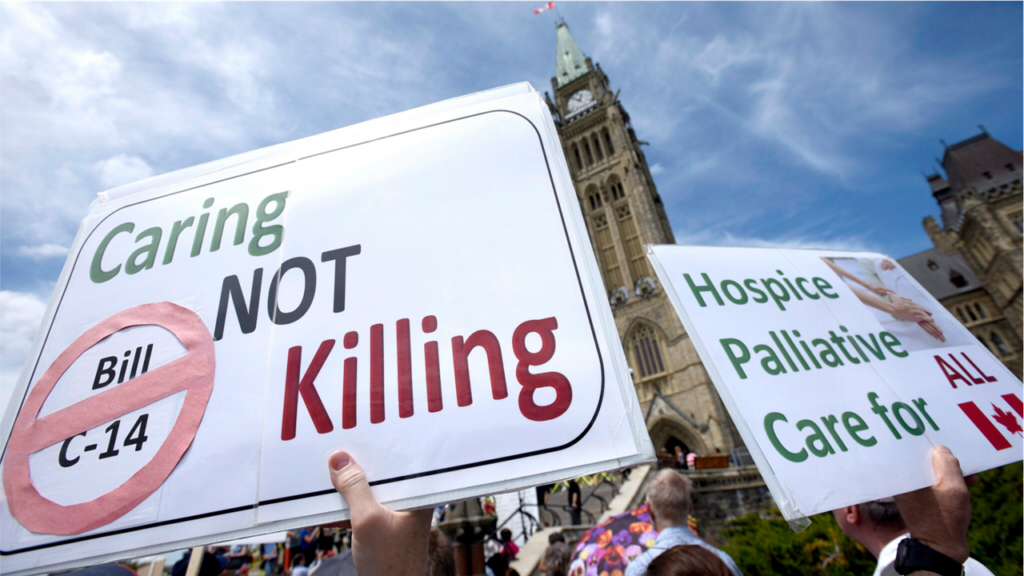Pregnant Women Who Took Pfizer’s RSV Vaccine Were More Likely to Give Birth Prematurely
Source: Children’s Health Defense
A new study published in BMJ Open reported pregnant women vaccinated with Pfizer’s Abrysvo RSV vaccine were more likely to experience preterm births.
The first peer-reviewed post-authorization safety analysis of Pfizer’s respiratory syncytial virus (RSV) vaccine found that the average time between vaccination and preterm birth was three days. Two-thirds of the cases occurred within a week of immunization.
The findings confirm concerns raised during clinical trials for the drug, which also found a higher number of preterm births among women who took the vaccines.
When Pfizer reported its clinical trial results, the vaccine maker said that although there were higher preterm birth rates in the vaccine group than the placebo group, the numbers weren’t statistically significant.
Some members of the U.S. Food and Drug Administration’s (FDA) vaccine advisory committee said they had serious safety concerns about the vaccine based on the clinical trial data.
In 2023, the FDA approved the vaccine despite the concerns and even though four committee members voted against approving the drug.
In its approval, the agency stipulated that Pfizer conduct post-marketing surveillance for preterm births and also for hypertensive disorders of pregnancy.
The FDA also limited the allowable period of vaccine administration to between 32 and 36 weeks of gestation to limit the risk of preterm birth before 32 weeks, which is associated with higher morbidity and mortality, according to the study.
Premature birth can have serious effects on a child’s health. Research shows that it can lead to a shorter lifespan, hypertension, ischemic heart disease, Types 1 and 2 diabetes, lipid disorders, chronic kidney disease and developmental disorders.
The BMJ study authors noted that post-licensure surveillance was especially important in this case because, although Pfizer didn’t report a statistically significant difference in the number of premature babies born to mothers who took its vaccine, there were higher numbers of preterm births.
They also noted that pregnant women at higher risk for preterm delivery because of other health factors or who had pregnancy complications in the past were excluded from most phases of the clinical trials.
GSK stopped the development of its RSV vaccine — which is nearly identical to Pfizer’s — for pregnant women when it found a safety signal for preterm births among vaccinated women. In that study, for every 54 infants born to women who received the vaccine, one additional preterm birth occurred.
GSK was never able to determine why the vaccine caused preterm births.
The BMJ study authors said there are important similarities in the nature of the preterm births in the GSK and Pfizer trials, adding:
“The consistent pattern of imbalance in preterm births across both maternal studies raises concerns that merit vigilant consideration, particularly given that the Pfizer trial showed differences between the vaccine and placebo groups across all three pathways to preterm birth — premature preterm rupture of membranes, preterm labour and provider-induced preterm birth.”
Pfizer failed to inform women in the clinical trial of preterm birth risk
When Pfizer conducted clinical trials to test its new RSV vaccine for pregnant women — aimed at protecting their babies — the pharmaceutical giant didn’t inform trial participants that GSK had halted its trial for a similar vaccine due to a concerning safety signal showing a potential risk of preterm birth.
Even though Pfizer knew about the GSK trial and safety signal, it continued enrolling thousands of unsuspecting pregnant women without disclosing the preterm birth risk in its consent forms, according to a November 2023 investigation by The BMJ.
To many healthcare advocates and experts, Pfizer’s omission represents an egregious violation of informed consent and a disregard for the autonomy of pregnant women participating in clinical research.
“Any failure to provide new and potentially important safety information data to trial participants is ethically problematic,” Dr. Charles Weijer, bioethics professor at Western University in London, Ontario, Canada, told The BMJ.
Pfizer did not immediately respond to The Defender’s inquiry as to whether it would take action in response to the study and whether its own post-surveillance analyses had made similar findings.
Further research ‘is imperative’
For the new BMJ Open study, published this month, Canadian researchers at the University of Ottawa School of Epidemiology and Public Health assessed all adverse events reported to the Vaccine Adverse Event Reporting System (VAERS) database following the Abrysvo shot between Sept. 1, 2023, and Feb. 23, 2024.
They extracted all reports of adverse events related to the RSV vaccine from the VAERS database. They narrowed the scope of extracted reports to pregnant women.
They analyzed maternal age, gestational age at the time of vaccination, interval until the onset of the event and reported outcomes.
Using a statistical data mining technique commonly used to detect safety signals — the Bayesian confidence propagation neural network — they calculated the safety signal for adverse events related to the RSV vaccine and found the biggest signal for preterm birth.
In all but one case, the RSV vaccine was not co-administered with any other vaccine.
A major limitation of the VAERS database is that because VAERS reporting is voluntary, it doesn’t capture the entire population of pregnant women who received the vaccine or had an adverse event, the researchers wrote.
VAERS doesn’t determine causality, but it does raise a safety signal that warrants further investigation, which they found in this case.
Despite the limitations inherent in passive surveillance systems, the study authors said their findings contribute to the current understanding of the safety of this vaccine. Further research “is imperative to further explore this signal,” they wrote.
‘How many more trials are needed?’
Dr. Peter Selley, a retired U.K. general practitioner who has closely followed the development of the GSK and Pfizer RSV vaccines, has highlighted mounting data showing serious problems with these vaccines.
“The regulators cannot cope with any criticism of the decision to license and promote this vaccine,” Selley said. “How many more trials are needed?”
Selley said the BMJ study findings are particularly concerning because, in many places outside of the U.S., the RSV vaccine is recommended even earlier in pregnancy. For example, in the U.K., it is recommended at 28 weeks.
“The irony is that preterm babies, if they get RSV, have a worse outcome than term babies,” he added.
Children’s Health Defense Senior Research Scientist Karl Jablonowski similarly said, “Where children born prematurely are among those at the greatest risk for severe illness from RSV, a vaccine with a predilection for prematurity is self-defeating.”


This article was funded by critical thinkers like you.
The Defender is 100% reader-supported. No corporate sponsors. No paywalls. Our writers and editors rely on you to fund stories like this that mainstream media won’t write.
Jablonowski said the only contraindication indicated on the package insert is for people with a severe allergic reaction to any component of the vaccine. He added:
“This is a glaring oversight of a serious suspected problem with the product. It has not been shown to be safe in persons with an increased risk of premature birth. With strong indications of induced prematurity, it would be unethical to perform such a study.”
French scientist Hélène Banoun also highlighted the very different recommendations by global regulators for the vaccine.
The FDA recommends the vaccine between 32 and 34 weeks, but the European Medicines Agency (EMA) recommends it between 24 and 36 weeks. In France, the health authority (Haute Autorité de santé or HAS) recommends the vaccine for women between 32 and 36 weeks, and in Germany, the regulators (STIKO vaccine advisory committee at the Robert Koch Institute or RKI) do not recommend the vaccine for pregnant women at all.
“Why do health agencies have different recommendations for a product that is to be administered to a young, fragile female population?” Banoun asked.
“To restore public confidence in the authorities’ advice, shouldn’t these recommendations be similar? How can we justify the fact that the EMA, FDA-US, HAS, RKI and STIKO disagree?”
Related articles in The Defender
- GSK and Pfizer RSV Vaccines for Pregnant Women Increased Risk of Preterm Births — GSK Ended Its Trials, but FDA Approved Pfizer Shots
- ‘Risky Strategy’: CDC Signs Off on Pfizer RSV Vaccine for Pregnant Women to Protect Newborns
- ‘Ethically Problematic’: Pfizer Failed to Tell Pregnant Women in RSV Vaccine Trial About Preterm Birth Risk
- 34 Deaths, 302 Serious Injuries: RSV Vaccines Aren’t Even a Year Old but Some Experts Say It’s Time to Pull Them From the Market














